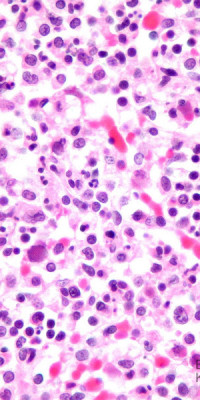Canine Adenovirus, also known as infectious canine hepatitis is a worldwide, contagious disease of dogs with signs that vary from a slight fever and congestion of the mucous membranes to severe depression, marked leukopenia, and coagulation disorders. It also is seen in foxes, wolves, coyotes, bears, lynx, and some pinnipeds; other carnivores may become infected without developing clinical illness.
This virus targets the functional parts of the organs, most prominently the liver, kidneys, eyes and the cells that line the interior surface of the blood vessels.
Transmission:
The virus begins by localizing in the tonsils, gestating around 4 to 8 days after nose and mouth exposure. It then spreads into the bloodstream. During this stage of the infection, the virus is shed into the feces and saliva, making both infectious to other dogs. Ingestion of urine, feces, or saliva of infected dogs is the main route of infection. Recovered dogs shed virus in their urine for up to 6 months.
Symptoms:
Symptoms vary based on the severity of the canine adenovirus infection, from mild to life threatening. However, most dogs recover after a brief illness, although chronic corneal edema and kidney lesions may persist. Common symptoms include:
- Fever
- Anorexia
- Vomiting
- Diarrhea
- Abdominal Pain
- Tonsillitis


